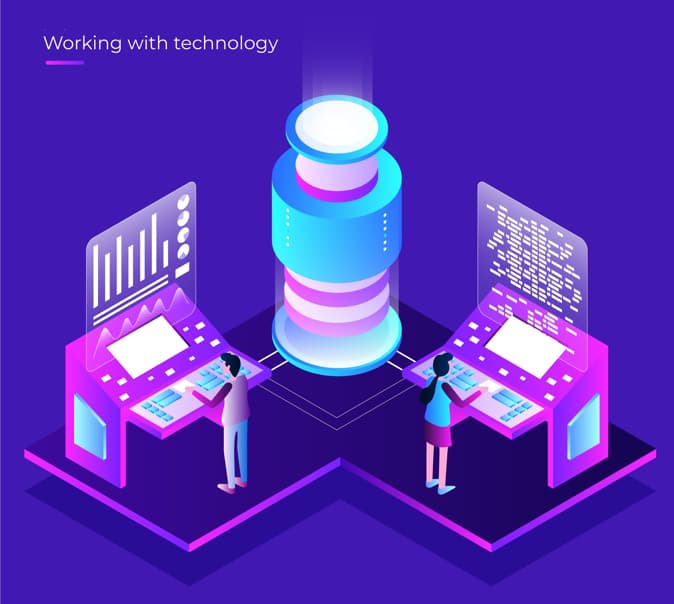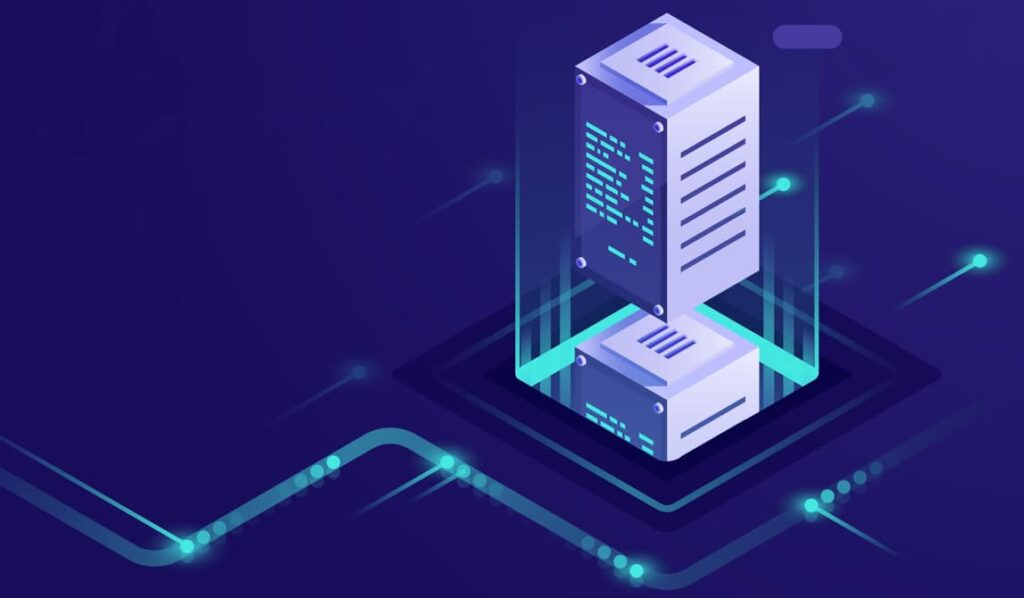Web Hosting
Decentralized Web Hosting: Empowering Digital Freedom
In the dynamic realm of the internet, the emergence of decentralized web hosting is heralding a transformative era. Breaking free from the constraints of centralized servers.
This innovative approach harnesses blockchain technology, peer-to-peer networks, and other distributed systems to reshape how websites and web applications are hosted.
What is decentralized web hosting?
Decentralized web hosting is a paradigm of hosting websites and web applications without reliance on centralized servers. It leverages blockchain technology, peer-to-peer networks, and distributed systems to store and deliver content.
In contrast to traditional hosting, which depends on a central authority or server, decentralized hosting distributes data across a network of nodes, enhancing security, privacy, and control.
What is an example of a decentralized Web?
An example of a decentralized web is the InterPlanetary File System (IPFS). IPFS is a protocol and network designed to create a content-addressable, peer-to-peer method of storing and sharing hypermedia in a distributed file system.
It allows users to access and host content without a central server, exemplifying the principles of decentralized web architecture.
What is the decentralization of the Web?
The decentralization of the web refers to the shift away from traditional, centralized models of web infrastructure. In a decentralized web, data is distributed across multiple nodes and systems, eliminating the need for a single point of control or authority.
This approach aims to reduce the vulnerabilities associated with centralized systems, offering increased security, privacy, and user control.
Advantages of Decentralized Hosting
- Fortifying Security and Privacy
In the labyrinth of cyberspace threats, decentralized hosting stands as a formidable fortress. By distributing data across a network of interconnected nodes, the system mitigates the risks associated with single points of vulnerability.
Users relish heightened security, while their data enjoys the sanctuary of decentralization, free from the prying eyes of a single entity.
Elevate your security standards with Hostarmada, offering cutting-edge decentralized hosting solutions.
- Empowering Control Over Data
At the heart of decentralization lies a paradigm shift in control. Users wield newfound authority over their data, dictating its usage and minimizing the peril of unauthorized access or manipulation.
- Liberation from Censorship and Surveillance
In decentralization, the shackles of centralized authority are cast off, paving the way for a liberated online experience. The elimination of centralized control translates to a shield against censorship and surveillance, fostering a digital realm where freedom prevails.
Challenges of Decentralized Hosting

- Navigating Technical Realms
The allure of decentralization does come with its share of challenges. Implementation demands a degree of technical acumen, navigating the intricacies of distributed systems and ensuring a robust infrastructure.
Simplify the journey with Hostarmada, a provider of user-friendly decentralized hosting solutions coupled with expert support.
- Legal Complexities: Charting Uncharted Territory
The decentralized landscape presents uncharted legal territories. Establishing clear regulatory frameworks becomes imperative for widespread adoption, striking a delicate balance between innovation and compliance.
- Performance and Scalability: The Balancing Act
In comparison to the streamlined efficiency of centralized hosting, decentralized solutions grapple with performance and scalability hurdles. Ongoing developments, however, hold the promise of overcoming these challenges.
Difference Between Centralized and Decentralized Hosting:
Centralized Hosting:
- Definition: In centralized hosting, a website or application is hosted on a single server or a cluster of closely connected servers.
- Control: Control over data, security, and maintenance lies with a central authority or hosting provider.
- Advantages: Simplicity in management, ease of scalability, and typically lower costs.
- Disadvantages: Vulnerability to single points of failure, potential security risks, and less control for users.
Decentralized Hosting:
- Definition: Decentralized hosting distributes the hosting responsibilities across multiple servers or nodes.
- Control: Users have greater control over their data, and there’s no single point of control.
- Advantages: Enhanced security, reduced risk of downtime, and increased user control over data.
- Disadvantages: May require more technical expertise, potential performance challenges, and increased complexity.
Comparison Table:
| Aspect | Centralized Hosting | Decentralized Hosting |
| Control | Central authority or provider | Distributed among users or nodes |
| Security | Potentially vulnerable | Enhanced due to distribution |
| Scalability | Generally easier | May require more planning |
| Downtime Risk | Higher risk of downtime | Reduced risk with distributed hosting |
| User Control | Limited | Higher control over data and hosting |
| Technical Expertise | Less required | May require more technical knowledge |
Difference Between Centralized and Decentralized Websites:
Centralized Website:
- Structure: Information, data, and functionalities are typically stored on a central server.
- Control: The central authority manages and controls the website’s content and operations.
- Examples: Traditional websites, often associated with Web 2.0.
Decentralized Website:
- Structure: Content is distributed across a network of nodes, reducing reliance on a central server.
- Control: Users have more control over their data, and content may be controlled collectively.
- Examples: Websites using blockchain or peer-to-peer technology, often associated with Web 3.0.
Comparison Table:
| Aspect | Centralized Website | Decentralized Website |
| Data Storage | Central server | Distributed across nodes |
| Control | Central authority or owner | More distributed or collective control |
| Resilience | Vulnerable to central server failure | Resilient to single points of failure |
| User Privacy | May be at risk | Enhanced privacy and control |
| Innovation Potential | Limited by central authority | Increased potential for innovation |
Decentralized and Centralized Web:
Centralized Web:
- Definition: The traditional model where data, services, and control are concentrated in centralized servers.
- Control: Central authorities or entities manage and control the majority of web-based services.
- Characteristics: Often associated with Web 2.0, limited user control, and potential privacy concerns.
Decentralized Web:
- Definition: A vision for the future internet where data, control, and services are distributed across a network of nodes.
- Control: Users have more control over their data and services, reducing reliance on central authorities.
- Characteristics: Associated with Web 3.0, increased user empowerment, enhanced privacy, and security.
Graphical Representation:
Centralized Web —--> [Central Server]
Decentralized Web —--> [Distributed Nodes]
Decentralized vs. Centralized Server:
Centralized Server:
- Configuration: Multiple websites or applications hosted on a single central server or cluster of servers.
- Control: Managed by a central authority or hosting provider.
- Advantages: Simplicity, ease of management, and cost-effectiveness.
Decentralized Server:
- Configuration: Hosting is distributed across multiple servers or nodes.
- Control: Users have more control over their server configurations and data.
- Advantages: Enhanced security, reduced risk of downtime, and increased user control.
Comparison Table:
| Aspect | Centralized Server | Decentralized Server |
| Configuration | The single central server or cluster | Distributed across multiple servers |
| Control | Central authority or provider | More control for individual users |
| Security | Potential single point of failure | Enhanced due to distribution |
| Scalability | May have limitations | More potential for scalability |
| User Control | Limited | Higher control over server setup |
These comparisons aim to provide a comprehensive understanding of the distinctions between centralized and decentralized hosting, websites, and servers.
Each model comes with its own set of advantages and challenges, catering to different needs and preferences in the evolving landscape of web technology.
The Future Landscape of Decentralized Hosting

- Redefining the Internet Paradigm
Decentralized hosting isn’t just an evolution; it’s a revolution. It marks a profound shift in the internet’s structure, offering a more open and democratic alternative encapsulated in the ethos of Web3.
- Propelling Forces
The momentum behind decentralized hosting is fueled by a confluence of factors. From the surging interest in blockchain technology to the continual development of decentralized infrastructure,
the rising demand for privacy and security, and the emergence of decentralized social media platforms – these forces collectively carve the path for a decentralized future.
Pioneer the decentralized journey with Hostarmada, a leading provider of decentralized hosting solutions.
Conclusion
Decentralized web hosting is not merely a technological innovation; it’s a visionary expedition into the future of the internet.
As we confront challenges and embrace advantages, the decentralized landscape unfolds as a sanctuary for security, privacy, and openness.
Seize the reins of the decentralized future and embark on the creation of your decentralized website with tools like Octopus. do.
Initiate your journey today with Hostarmada, your portal to hassle-free decentralized website creation.
Frequently Asked Questions (FAQ’s)
Q. Is Web 3.0 centralized or decentralized?
A. Web 3.0 is envisioned as a decentralized web. Unlike its predecessors, Web 3.0 aims to move beyond the centralization found in Web 2.0 applications.
It embraces principles of decentralization, utilizing technologies like blockchain and distributed systems to create a more open, transparent, and user-centric internet experience.
Q. What are the benefits of a Decentralized Web?
- Enhanced Security: Decentralization reduces the risk of cyber threats by eliminating single points of failure.
- Privacy: Users have greater control over their data, reducing the risk of unauthorized access.
- Reduced Censorship: Elimination of central authorities decreases the risk of content censorship.
- Increased Control: Users have more control over their online presence and data.
- Innovation: Decentralized web models foster innovation by removing traditional barriers.
Q. Why is a decentralized web good?
- Security: By distributing data, it minimizes the risk of cyber-attacks and enhances overall security.
- Privacy: Users have greater control over their personal information, reducing the chances of data misuse.
- Reduced Censorship: Eliminating central authorities mitigates the risk of censorship, promoting freedom of expression.
- User Empowerment: Decentralization gives users more control over their online presence and data.
- Innovation and Openness: It fosters innovation by creating a more open and collaborative digital environment.



